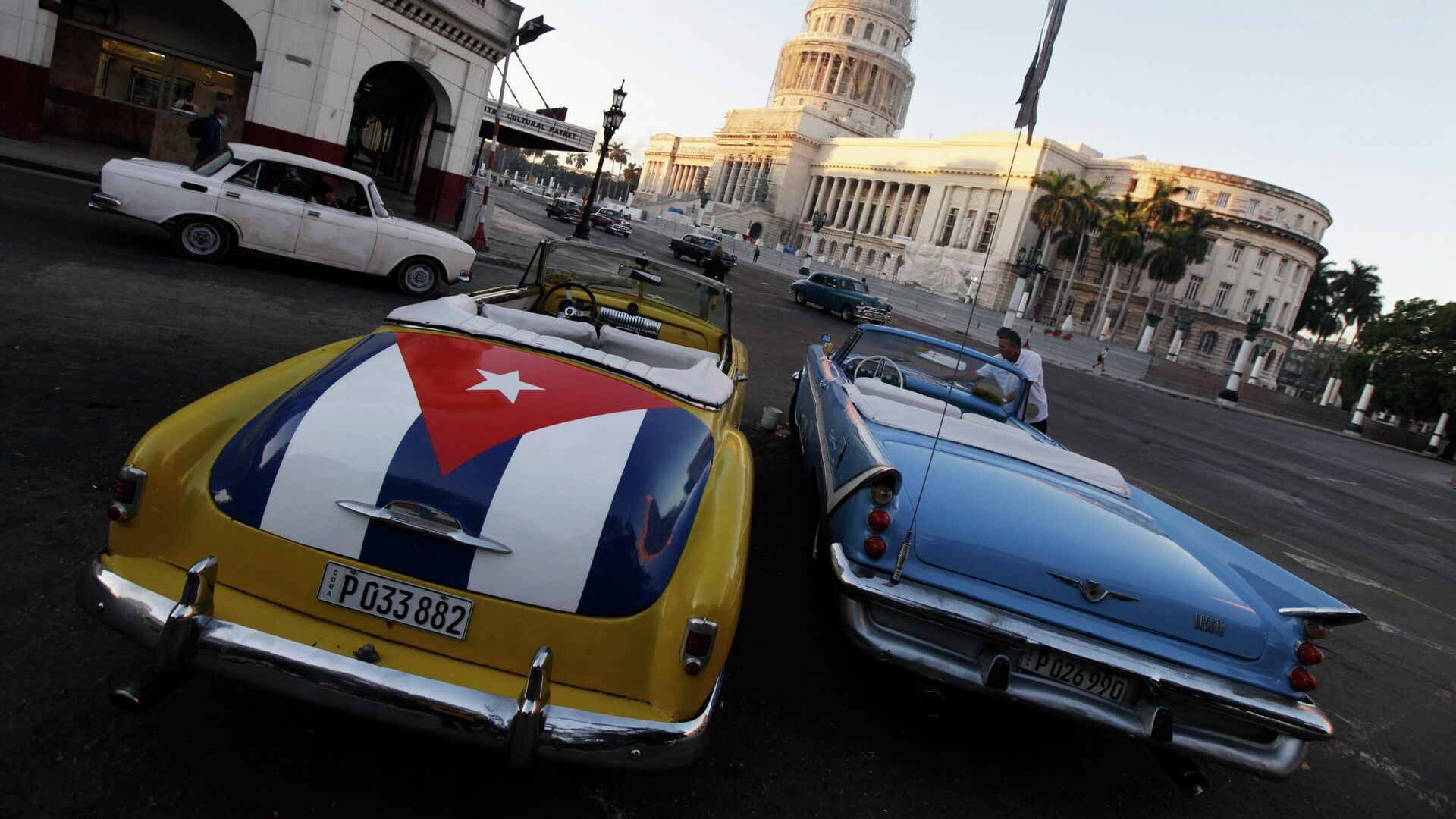US Looking at Ways to Keep Remittances From Cuban Government Hands
17:39 GMT 05.11.2021 (Updated: 18:30 GMT 19.10.2022)

© REUTERS / Enrique De La Osa
Subscribe
Continuing a trend begun in the summer after protests in Cuba, the US government is continuing to look for ways to keep resources such as remittances sent by family members from abroad from getting into the hands of the Cuban government.
According to a US official who spoke with reporters on Friday, the White House rejected a proposal by the State Department on remittances, sending it back to the working group for further work.
US President Joe Biden ordered a review of US policy following protests in July that the US hailed as an eruption of anti-government malcontent and which found deep resonance in the right-wing Cuban exile communities in southern Florida. The protests were generally not anti-government in nature, but demanded fixes to brownouts and rising commodity prices.
Biden's predecessor, Donald Trump, undid a thaw in US-Cuban relations by the previous president, Barack Obama, and totally banned remittances from being sent to family members in the socialist island nation in an effort to ramp up pressure and force regime change.
In August, the US Treasury and Commerce departments said they were looking at ways to ensure Cubans' access to the internet, which the US said the Cuban government shut down during the protests as a way to control them. A senior administration official also said in late July that the administration was "in talks with private sector providers about the possibility of providing wireless LTE communications to the Cuban people."
It wouldn't be the first time the US has tried to funnel support to subversive efforts inside Cuba. In 2014, the US Agency for International Development (USAID), part of the US State Department, created a Twitter lookalike called ZunZuneo that “evaded Cuba’s digital restrictions by creating a text-messaging service that could be used to organize political demonstrations."
New Boss, Same Sanctions Regime
While Biden ran on a campaign of undoing Trump's many changes to US policy, his nine months in office have only seen new sanctions added against Cuba.
US policy toward Cuba is similar to that taken against Hamas in Gaza: portraying the group as unsupported by the masses of people and having goals antithetical to theirs. Following the 11-day war against Israel in Gaza in May, the US pledged support for rebuilding the besieged city - but similarly pledged to deny a single cent of aid to Hamas. Like Hamas, the US State Department lists Cuba as a state sponsor of terrorism - a retaliatory move made after the Cuban government refused to extradite members of the Colombian National Liberation Army (ELN) who traveled to the island in good faith in 2017 for historic peace negotiations that ended 53 years of armed struggle.
Since the Cuban revolution in 1959 threw out the US-backed dictator, Fulgencio Batista, and ushered in a socialist government willing to lend support to anti-colonial movements across Latin America and Africa, the US has sought to overthrow that government. A blockade banning most goods and financial transactions has caused severe shortages on the island, which despite the economic pains has built one of the world's premier biomedical industries that has produced five COVID-19 vaccines alongside numerous other advancements.
The United Nations General Assembly votes every year to condemn the US blockade. At the most recent vote, in June, 184 countries voted to condemn and two voted against - the US and Israel. Three others, all US client states - Colombia, Ukraine, and Brazil - abstained from the vote.
Inside the US, antiwar activists have organized solidarity campaigns to get urgently-needed goods to the Cuban people, including shipping millions of syringes to allow COVID-19 vaccines to be administered to the population. The most recent shipment, which arrived on Friday, included 9 tons of food.
Just arrived in cuba with 18,000 pounds of food donated by people in US. #UnblockCuba pic.twitter.com/IFSMIAK5d3
— Medea Benjamin (@medeabenjamin) November 5, 2021
In the wake of new sanctions in July, activists also organized a "Let Cuba Live" campaign aimed at raising awareness of the destructive effects of the 243 new sanctions Trump added against Cuba during his four years in office.


